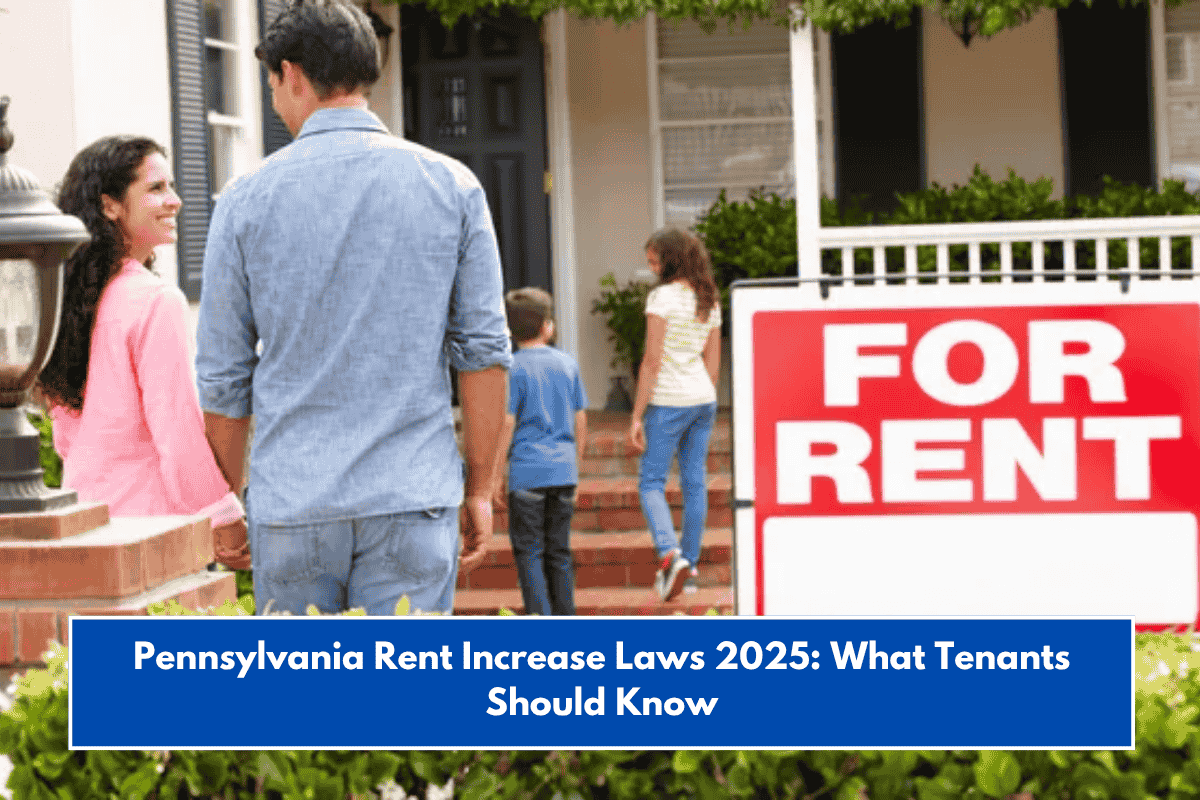No Statewide Rent Control or Rent Cap
- Pennsylvania does not have any statewide rent control or rent stabilization laws in 2025. This means there is no legal limit on how much a landlord can increase rent, whether by percentage or dollar amount.
- Landlords are free to raise rent as much as the market allows, provided they follow proper notice requirements and do not discriminate.
Notice Requirements for Rent Increases
- Monthly leases: Landlords must give at least 30 days’ written notice before a rent increase takes effect.
- Quarterly or annual leases: Require 60 days’ written notice.
- Weekly leases: Require 7 days’ notice.
- The notice must clearly state the new rent amount and the date the increase begins. Verbal notices are not valid; written documentation is required.
When Can Rent Be Increased?
- Rent can only be increased at the end of a fixed-term lease, unless the lease agreement specifically allows for mid-term increases.
- For month-to-month or week-to-week leases, rent can be increased with proper notice at any time.
No Limit on Frequency or Amount
- There is no restriction on how often or by how much rent can be increased in Pennsylvania. Landlords can raise rent more than 10% if they choose, as long as they provide proper notice and do not violate fair housing laws1.
- Excessive increases may lead to tenant turnover, so many landlords consider market rates to avoid vacancies.
Local Ordinances and Special Protections
- Some cities, such as Philadelphia, may have additional tenant protections or requirements. For example, Philadelphia has a permanent eviction diversion program requiring landlords to attempt out-of-court mediation before filing for eviction.
- Tenants in Philadelphia and other municipalities should check local ordinances for any extra rules regarding rent increases or tenant rights.
Recent Legal Changes Affecting Renters (2024–2025)
- Security deposit reforms: Landlords must follow stricter rules for holding and returning security deposits, including providing an itemized list of deductions and adhering to new limits and timelines.
- Property Tax/Rent Rebate (PTRR) program: Expanded eligibility and increased rebates for seniors and low-income renters, with the income cap now at $45,000 and a maximum rebate of $1,000.
- Fair housing: New laws allow for the removal of discriminatory language from property deeds at no cost.
What Tenants Should Do
- Review your lease: Understand the terms and any provisions about rent increases.
- Watch for written notice: Make sure any rent increase is communicated in writing and with proper notice.
- Check local laws: If you live in Philadelphia or another city with additional protections, consult local resources.
- Negotiate if possible: If faced with a large increase, try to negotiate with your landlord or seek local advocacy support.
- Know your rights: Excessive or retaliatory increases, or those based on discrimination, may be challenged under fair housing laws.
Summary Table: Pennsylvania Rent Increase Laws 2025
| Rule/Requirement | Statewide Law (2025) |
|---|---|
| Rent control/cap | None (no limit) |
| Notice for monthly lease | 30 days written notice |
| Notice for annual lease | 60 days written notice |
| Frequency of increases | No limit (with notice) |
| Local ordinances | May apply (e.g., Philadelphia) |
| Security deposit rules | Stricter limits and timelines |
| Fair housing | Discrimination prohibited |
Pennsylvania remains a “free market” state for rent increases, so tenants should be proactive in understanding their lease, monitoring for proper notice, and seeking help if they believe their rights are violated.
SOURCES
[1] https://www.hemlane.com/resources/pennsylvania-rent-control-laws/
[2] https://www.steadily.com/blog/rent-increase-laws-regulations-pennsylvania
[3] https://www.avail.co/education/articles/pennsylvania-landlord-tenant-laws-overview-for-landlords
[4] https://rentpost.com/resources/article/raise-rent-laws-in-pennsylvania/
[5] https://latoisonlaw.com/landlord-tenant-blog/pennsylvania-property-and-tenant-laws-in-2024/














